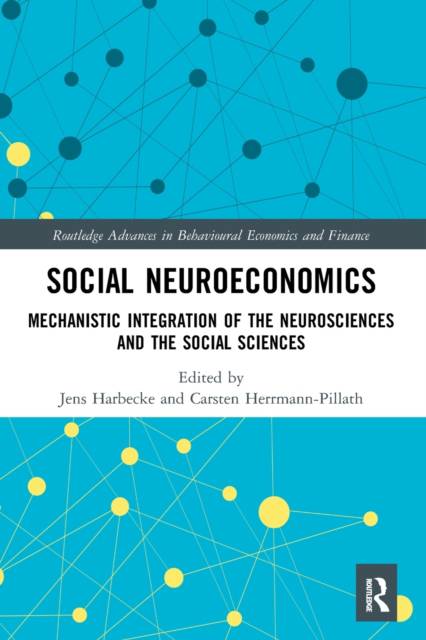
En raison d'une grêve chez bpost, votre commande pourrait être retardée. Vous avez besoin d’un livre rapidement ? Nos magasins vous accueillent à bras ouverts !
- Retrait gratuit dans votre magasin Club
- 7.000.000 titres dans notre catalogue
- Payer en toute sécurité
- Toujours un magasin près de chez vous
En raison de la grêve chez bpost, votre commande pourrait être retardée. Vous avez besoin d’un livre rapidement ? Nos magasins vous accueillent à bras ouverts !
- Retrait gratuit dans votre magasin Club
- 7.000.0000 titres dans notre catalogue
- Payer en toute sécurité
- Toujours un magasin près de chez vous
Social Neuroeconomics
Mechanistic Integration of the Neurosciences and the Social Sciences
97,95 €
+ 195 points
Description
Neuroeconomics has emerged as a paradigmatic field where neuroscience and the social sciences are integrated in one analytical and empirical approach. However, the different disciplines involved often only relate to each other via the shared object of research, and less through the constructing of precise models of integrative mechanisms.
Social Neuroeconomics explores the potential of philosophical and methodological reflections in the neurosciences and the social sciences to inform those efforts at cross-disciplinary integration, with a special focus on recent contributions to mechanistic explanations. The collected essays are drawn from the fields of neuroscience, psychology, economics, sociology and philosophy, and examine the ways and methods of constructing unified conceptual frameworks that can guide empirical work and hypothesis building. This is demonstrated in a range of applications, particularly regarding finance and consumer behavior. The concept of the 'social brain' is also explored; a multilevel framework in which complex analytical categories such as emotions or socially mediated cognitive processes connect neuronal and social phenomena in specific mechanisms that generate behavior. This book addresses a wide audience across the various disciplines, reaching from the neurosciences to the social sciences and philosophy.Spécifications
Parties prenantes
- Editeur:
Contenu
- Nombre de pages :
- 288
- Langue:
- Anglais
- Collection :
Caractéristiques
- EAN:
- 9780367502119
- Date de parution :
- 29-04-22
- Format:
- Livre broché
- Format numérique:
- Trade paperback (VS)
- Dimensions :
- 156 mm x 234 mm
- Poids :
- 408 g

Les avis
Nous publions uniquement les avis qui respectent les conditions requises. Consultez nos conditions pour les avis.





